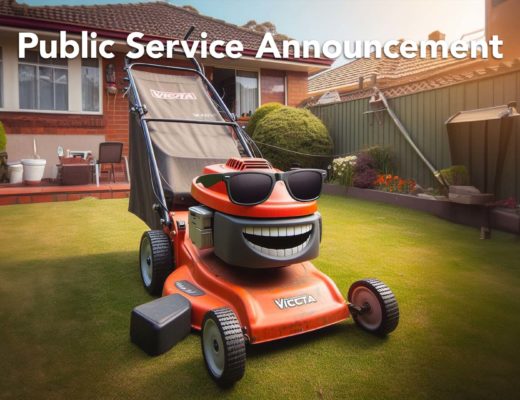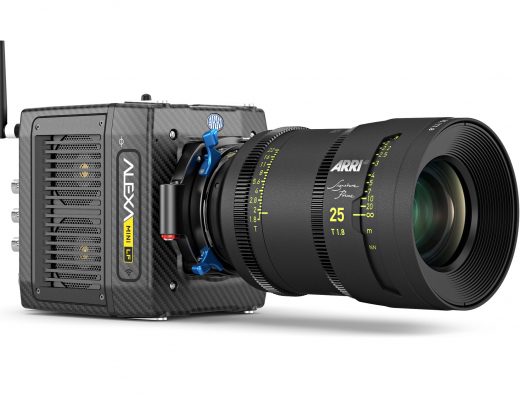Almost everyone now seems interested in video or cameras or movie making. Filmmaking has become a popular hobby and even a sport. This is perfectly fine. However, I find that very few people are serious about becoming a professional filmmaker. If you are serious, this article is for you.
A filmmaker, by the way, isn’t necessarily a person who shoots on film or makes theatrical movies. For lack of a better phrase (and content ideator isn’t a better phrase), I declare a person who works in any capacity to make movies of any sort to be a filmmaker. This article focuses on production, but analogous principles apply to VFX and post-production.
 The good news is that if you pursue training in earnest, you immediately stand head and shoulders above the rest. But what is the best way to get trained?
The good news is that if you pursue training in earnest, you immediately stand head and shoulders above the rest. But what is the best way to get trained?
There is one essential ingredient to film training. It isn’t:
- Film school
Schools approach their subjects academically in a classroom, a unique environment perfect for investigating abstractions. Student films are great opportunity to experiment with other students, none of whom know much more than the others.
I’ve taught in film schools. I have a degree in film production. Film school is great. I am grateful to use my academic knowledge every day that I work. When I was in film school, though, professional filmmakers had a dim view of film school grads, who they viewed as arrogant yet clueless. It was well understood, both at school and on real movie sets, that the last thing you’d want to admit to, say, a gaffer, is that you went to film school. Times have changed: film school is big business with street cred. But it remains appropriately academic.
- Buying gear and trying it out
I own two great guitars. I’m a terrible guitar player. Buying movie gear doesn’t make you a filmmaker or get you trained.
- Working on hobby films
Hobby films are similar to student films, except that they lack classroom instruction. The people involved are passionate about filmmaking or getting their story told. Some of them may even have been trained in professional filmmaking. I’ve made hobby films myself. Unlike professional films, though, they lack necessary resources and don’t absolutely need to be finished or be good. The primary endeavor is to have a good time. There is little opportunity for proper training here.
- Camera demos at trade shows
Equipment salespeople offer informational demos to attract people who might buy their gear. Their main focus is sales; what sells and what is helpful training are very often different things.
- YouTube, newsgroups, forums, mailing lists, etc.
Imagine that you are in a dark room with a lot of people and an elephant; each is trying to describe the elephant. The trunk is like a big snake. The leg like a tree. The Elephants forum on reduser.net would be like this.
- Articles like this one
I find, more and more, that people hoping to learn filmmaking stop at these. The inefficacy of this is readily apparent.
The one essential ingredient of a filmmaking education is personal training on a professional set. Other educational experiences have no real meaning without this.
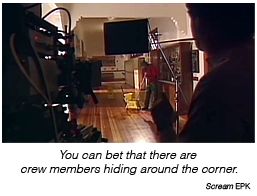 I shot the behind-the-scenes material for the movie Scream. On the first day, I showed up on the set with a sound guy and the PR person. As we walked onto the location, discussing the particulars of the assignment, the three of us automatically lowered our voices, took a particular path and then, consensually, stopped walking and became silent. We waited. We heard “and cut!” and continued, talking in normal voices. As we crossed the hall, I looked to my left and noticed the camera pointing in our direction. Trained professionals, we had noticed the subtle signs and avoided disrupting the shot.
I shot the behind-the-scenes material for the movie Scream. On the first day, I showed up on the set with a sound guy and the PR person. As we walked onto the location, discussing the particulars of the assignment, the three of us automatically lowered our voices, took a particular path and then, consensually, stopped walking and became silent. We waited. We heard “and cut!” and continued, talking in normal voices. As we crossed the hall, I looked to my left and noticed the camera pointing in our direction. Trained professionals, we had noticed the subtle signs and avoided disrupting the shot.
You can’t teach this in film school.
To learn professional filmmaking, you have to get up from the computer and work with experienced people who know what you wish you knew. Learning filmmaking is less like learning accounting and more like learning a martial art. You have to learn it in person.
Don’t worry: we’re professionals
A professional set has an abundance of professionals on it. You will note calmness, organization, efficiency and, if you look carefully, creativity. Not I-know–let’s-duct-tape-the-DP-to-the-bumper creativity, but the kind that shows up on the screen.
The first sign that you are on an amateur set: there’s no call sheet. Other indicators: no permits, no real job titles, a walking lunch, an auteur. No pay is a big clue.
These days, people who don’t know what they are doing make up weird, alternative-universe methods that don’t work nearly as well as the way that films have been made for 100 years. These get passed down to the next wave of unsuspecting neophytes as fact. The next thing that you know, you’re accomplishing almost nothing in a 16 hour day.
This sort of thing may indeed be modern, cool, new wave, guerrilla or cutting edge, but it is also lame, unproductive and unprofessional. Your chance of learning almost anything positive about filmmaking from these people is nearly nil.
How to get on a set
You can’t easily get on a professional set unless you are valuable. Reading about something or watching a YouTube video doesn’t make you particularly valuable.
Not valuable yet? How can you get on a set to learn about filmmaking and become valuable if you aren’t yet valuable enough to get on a set?
Three traditional ways are:
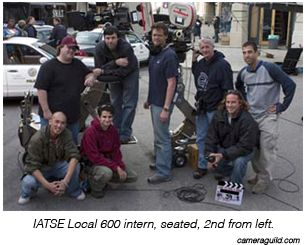 Be an intern. Unfortunately, due to recent court decisions, it isn’t prudent for anyone to hire un-paid interns anymore. In order to be a paid intern, you have to be valuable enough to get the job. Back to square one.
Be an intern. Unfortunately, due to recent court decisions, it isn’t prudent for anyone to hire un-paid interns anymore. In order to be a paid intern, you have to be valuable enough to get the job. Back to square one.- Go to a school with an apprenticeship program. The quality of this apprenticeship depends on the school and the people they apprentice you to. Your mileage may vary.
- Join a union. They have formal apprenticeship and training programs. This method is guaranteed to get you the proper training.
A lot of people will advise that you get on a set as a gofer, for free or cheap, and build your career from there. The problem with this is that there are really no entry level jobs in movies: a Production Assistant is an actual, skilled job, as is Loader, Camera Assistant, Background Actor (AKA Extra), etc. People often ask me if they can come on a set and carry things. “The carrying of things takes about 15 minutes,” I reply. “What will we do with you for the rest of the day?”
One way around this problem is to learn something about being a Background Actor or Production Assistant by calling a professional who does the job. Then volunteer to work with him or her (or with a Casting Director or Producer) on a non-union set. I suggest these because there are often not enough of these professionals in production budgets; there is sometimes room for a few more unpaid trainees. If you appear bright and he or she is desperate for the help, you might be able to persuade this person to take a chance on the un-paid intern liability.
Similarly, I suggest that you try learning something about Public Relations, another job that is often inexplicably vacant on low-budget movies. Having no PR person diminishes the chances that the filmmakers will sell the movie or make another one. Note the opportunity there.
Once you get one of these volunteer positions, do a very good job.
As soon you get some experience, a good reputation, contacts and referrals in one of these jobs, you become more valuable. At that point STOP WORKING FOR FREE. Three reasons:
- You aren’t very valuable if you are working for free or cheap, no matter how good you are. The object is to become more valuable.
- You will soon stop working with and learning from people who know what they are doing, because those people usually pay pros to do these jobs.
- You undermine the work of pros who do these jobs. They don’t appreciate it.
In any case, whether you are a volunteer, a paid intern or an apprentice, you’ve made it to a professional set. Congratulations.
What to do when you get there
When I was young, a grizzled old filmmaker gave the me the same advice that he got when he was young:
- Show up early
- Dummy up
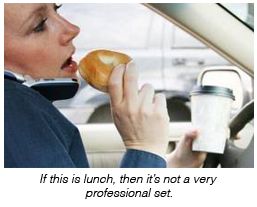
You are not known by what you say, but by how you listen and by what you do and don’t do.
While on the set, do your job, which is job one. Job two is watching and listening to the pros.
Do not take pictures. Do not look at your phone. Do not attempt to do anyone else’s job. Keep your mouth shut. If your presence seems unwelcome, step back. Be aware of where the camera is being pointed and will be pointed. Put your stuff where it will never be in the way. Ask permission.
Let’s say that you end up guarding an equipment truck, far from the production. If doing your job means that you don’t get to see or hear anything at all that day, then that is how that day is. Be grateful that you are even there. Chalk it up to experience and get on the next job.
Beware of mission drift. Have a goal.
See a power vacuum that you can jump into? Bad idea. Why? First, it’s probably not your job. Second, and most importantly, if you manage to wrest authority over something then you probably won’t be able to learn anything. Do not try to be an impromptu department head. Just obey, listen and learn.
Don’t worry about being noticed. If you are diligent and serious, you will be noticed.
Pick a pro or two to keep in contact with, people who you feel you can learn from. Send them LinkedIn (or whatever the link du jour is) requests. Having linked, explicitly ask permission to pose an occasional question. Do so sparingly, sincerely and concisely. You will never surpass these people, because they will always have more experience than you and are always learning too. Humility is essential.
Most pros are willing to help bring a bright, serious junior person up. On the other hand, most are weary of flakey suppliants. Show seriousness and tact.
What if the set turns out to be not-so-professional?
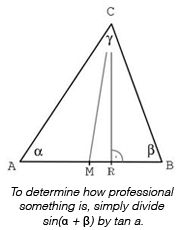 Evaluate the professionalism of the people you are learning from. Triangulate: ask someone different; “is this right?” You can learn from people who don’t know what they are doing as long as you can tell the difference. Back when I was a camera assistant, I worked with a DP whose arrogance was unassailed by his inability to expose film or direct a camera crew. I learned as much from him as I learned from the great DPs that I worked with.
Evaluate the professionalism of the people you are learning from. Triangulate: ask someone different; “is this right?” You can learn from people who don’t know what they are doing as long as you can tell the difference. Back when I was a camera assistant, I worked with a DP whose arrogance was unassailed by his inability to expose film or direct a camera crew. I learned as much from him as I learned from the great DPs that I worked with.
By the way: if something doesn’t look safe, refuse to do it. There is a safe way to do it, the way that you would be doing it if the production knew how to. If they can’t do it safely then they can’t do it.
Is it everything that you thought it would be?
If you find that professional filmmaking is not for you, then stop. No hard feelings. Many people discover that they prefer filmmaking to be a fun, if expensive, hobby. It is ok to be one of those people.
If you get well trained, and you pursue filmmaking as a business (which is another article altogether), then you will probably do well. If, on the other hand, dependable hours and a cozy office turn out to be more to your liking, at least you’ll always know what MOS means and what a Best Boy does.
Don Starnes directs and photographs movies and videos of all kinds and is based in Los Angeles and the San Francisco Bay Area. He was never a Production Assistant, but he worked his way up through most other movie jobs.
Also by Don Starnes:
![]() Monitors and filmmaking
Monitors and filmmaking
The difference between a movie and a video is that a movie is created in the filmmakers’ minds and a video is created on a monitor.
![]() Money
Money
It’s the Producer’s Invitational Pancake Breakfast. Just as the producers are cutting into short stacks with their plastic forks, all of the doors are locked…
![]() Blocking before coffee
Blocking before coffee
Feature film: first day. The first-time director is 45 minutes late. Finally, he shows up: harried, stubbly, preoccupied and exhausted…
![]() Ask me no questions and I’ll speak in no fragments
Ask me no questions and I’ll speak in no fragments
A sign taped to the door says “Quiet– filming.” This only makes you more nervous.
![]() Preview: the Mini XTC 9250-XL
Preview: the Mini XTC 9250-XL
Just in time for NAB, the 9250-XL is everything that a producer could want in a camera. The revolution has begun…
![]() DIY DCP
DIY DCP
How to make your own digital theatrical ‘print’ using Final Cut Pro, After Effects, guerrilla DCP software, pluck and maybe a little help from your friends.
![]() Keying and compositing in NukeX
Keying and compositing in NukeX
Skitch a ride up its steep learning curve using my template and tutorial.
G+

Filmtools
Filmmakers go-to destination for pre-production, production & post production equipment!
Shop Now











